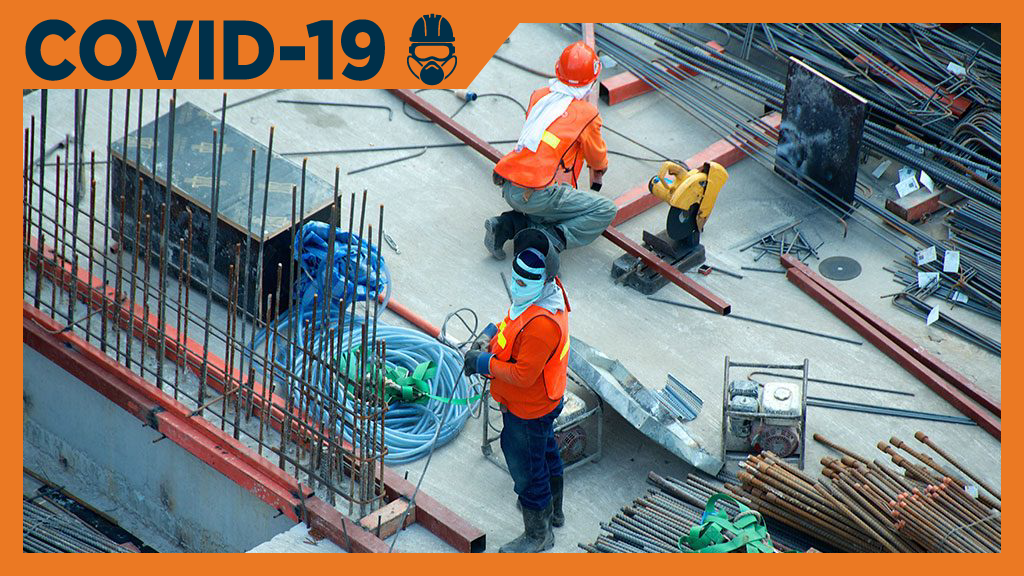When it comes to the COVID-19 pandemic in Ontario stakeholders in the residential building and renovation space face unique challenges and may face further obstacles if there is a second wave.
This was the view of three entrepreneurs who discussed their experience dealing with COVID-19 during a recent panel discussion hosted by The Collective Workspace, the first coworking space for interior designers, architects and builders in Toronto.
The discussion, entitled Road to Success — Construction Panel, featured Rocco Verrilli of Carriage Lane Design-Build, Evelynn Ratcliffe from Alair Homes Forest Hill and Guy Solomon of Penguin Basements. It was moderated by Maia Roffey of Black Sheep Interior Design.
“When COVID first hit I think everybody was scrambling to come up with what their new process was going to be,” explained Ratcliffe.
“We were all living in a place of uncertainty. We tried to take it day by day and as we were able to get answers to some of our questions, we started putting out communication to our clients. Clients come to us to make sure their investment is sound and safe so we had to make sure we were mirroring safety and structure to them. We tried to beef up our structure and safety as quickly as possible.”
They put in new COVID-19 signs on sites, implemented intake forms and communications that went out to the trades they work with on a regular basis. They also adjusted schedules to have one trade onsite at a time.
“We reached out to our clients and said for the safety of everybody involved, including your investment, we’re going to drop to one trade at a time,” said Ratcliffe. “For the most part our schedules were buffered already to be able to have one trade at a time but then we made it policy. We’ve maintained that policy, we’ve maintained intake forms and everything else we are doing for our sites just because if we stop now and have to reintegrate it for a second wave it will feel like starting over again.”
The spring season is usually busy for the firm, but this year was different.
“We didn’t hear from any new leads for several weeks,” Ratcliffe said. “We had a really healthy pipeline coming in so it hasn’t hurt us just yet, but we knew if that was going to continue it was going to be an issue. We understand people didn’t know it was going to happen and they weren’t necessarily ready to do large investments because maybe they needed that money now for their rainy day.”
Updating clients on the situation was difficult, Solomon explained, especially since it seemed to be changing all the time. His company would publish a one page update every week to keep clients in the loop.
“It was almost like the news would come out Thursday or Friday prior to the weekend and I had until the end of the day Friday to send it out otherwise I would get 15 to 20 messages over the weekend with questions or cancellation requests,” he recalled.
In March, April and May the company transitioned its sales process to be completely virtual, selling renovations online.
Sales didn’t drop off too much considering the situation, he noted.
“At the tail end of it as things started to open up again, customers started to get more comfortable with the notion that they are going to be working from home so they needed the renos done,” Solomon said.
However, the pandemic also forced the company to make some tough decisions in terms of cutting the workforce to become more lean.
Panellists also discussed what they are doing to prepare if and when there is a second wave.
“For the long term, I’m going to be honest, there is no solid idea of what is going to happen if we get a second wave,” Verrilli said. “We’re trying to prepare for it. The clients were signing up now, we’re putting small contingency plans in place.”
“Make everyone aware,” he advised. “Don’t hide from it. Talk about it. Discuss if something happens what can we do to shift things around.”
The biggest thing for Alair Forest Hill has been reaching out to trades and suppliers to see how the pandemic has impacted them and will if a second wave hits.
“We’re reaching out and saying, ‘are you going to be able to weather this storm?’ If they’re not we have to have contingencies in place to make sure we have a trade to fill in that spot if something happens,” said Ratcliffe. “Unfortunately, not everyone is going to make it through this which is a tragic reality but one that we have to face.”
Follow the author on Twitter @DCN_Angela.











Recent Comments
comments for this post are closed